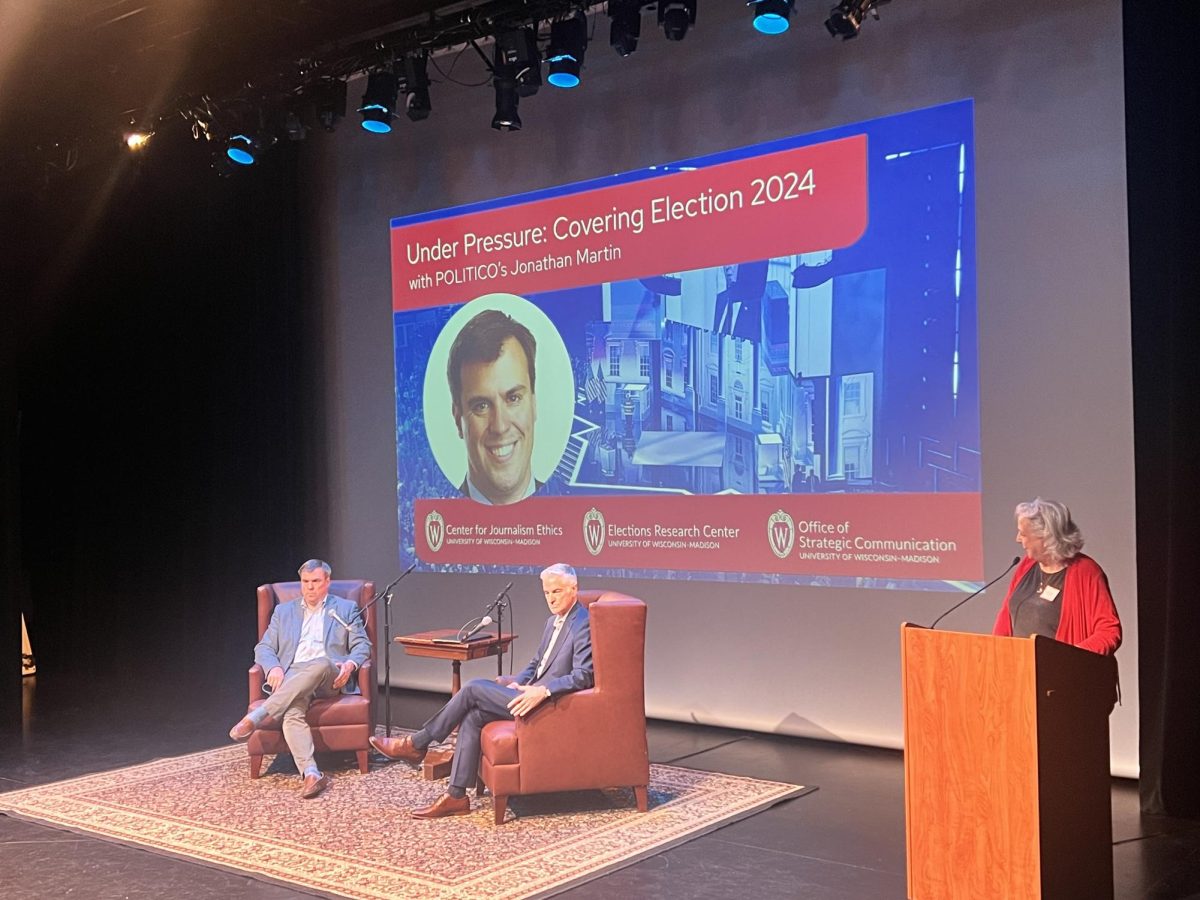
Former Vice President Al Gore gave the opening remarks at the Society of Environmental Journalists 19th Annual Conference at the Madison Concourse Hotel Friday, praising the progress that has been made in solving the climate crisis while also focusing on future progress.
Gore said two factors will significantly help overcome current obstructions to addressing the climate crisis in the United States. The first is the Senate’s climate change bill that supports significant reductions in the United State’s carbon dioxide emissions, while the second is an agreement at the United Nations Framework Convention on Climate Change, which will take place in Copenhagen, Denmark from Dec. 7 to 18.
In regard to the bill, Gore felt members of both parties need to compromise and it is likely the legislation will pass before the conference.
“There is much more bipartisan dialogue underway behind the scenes in the United States Senate than is presently publicly visible,” he said.
To accomplish this, Gore said the time to advocate on behalf of climate and energy is now, since the Senate has finished health care deliberations.
Jim Rogers, audience member and chairman, president and CEO of Duke Energy Corporation, agreed having the bill pass in the Senate is ideal, but he said he felt the probability is decreasing every day.
“It would be a much higher probability of an agreement (at Copenhagen) … if the U.S. would [act] before Copenhagen, because we have to really lead on this issue in order to get a meaningful agreement,” Rogers said.
As far as reaching an agreement in Copenhagen, Gore said it would be unacceptable to leave without one, even if it were to be similar to the Montreal Protocol of 1987, which laid down mandatory deadlines for the phasing out of ozone-depleting chemicals.
Gore was optimistic a solution will be found for the current crises and pointed to the progress that has been made since President Barack Obama took office in January as evidence.
“[Obama] began to change the dialogue immediately upon taking office,” Gore said. “Few would have predicted that within the first six months the House of Representatives would pass major [carbon dioxide] reduction legislation.”
Jane Lubchenco, audience member, undersecretary of commerce for oceans and atmosphere and administrator at the National Oceanic and Atmospheric Administration, also felt the Obama administration has opened up doors that have previously been shut.
“This administration represents an opportunity … to make very meaningful changes,” she said.
The Obama administration introduced another key factor — the construction of a super-grid that will be able to transport large amounts of energy from their renewable sources, whether they are solar, wind or geothermal, Gore said.
Nancy Sutley, chair of the White House Council on Environmental Quality, said a long-term investment of a price on carbon would stimulate breakthroughs in emission reduction and solutions to the climate crisis.
As far as energy is concerned, Gore said he believed dependence on carbon-based fuels to be the common link between the climate, economic and national security crises in the U.S.
“One of the reasons why all three of these challenges have been difficult is that they have often been approached separately, but there is a common thread running through all three of them, and it is our over-dependence on carbon-based fuels,” he said. “If you grab that thread and pull it all three of these crises begin to unravel.
Another key area where progress is being made has been the number of people examining and believing the science involved with the climate crisis, according to Lobchenco.
“I think there is increasing recognition on the part of America and the rest of the world that climate change is what we need to address, so we’ve actually made significant progress — instead of denial, there is agreement that is real,” she said.
Despite this supposed widespread agreement, there was a large counter rally hosted cooperatively by Collegians for a Constructive Tomorrow and Americans for Prosperity. Well over 200 hundred people showed up to display their solidarity in opposing many of the ideas set forth by Gore, according to Christina Wilson, CFACT’s midwest director.
In addition to deriding the soundness of the science in Gore’s “An Inconvenient Truth,” the counter-rally was particularly concerned with the cap-and-trade legislation Gore is pushing for. Wilson believes this legislation, if passed, would not only place cumbersome strain on America’s working families in a tanking economy by significantly increasing the cost of living, but would also severely hurt developing countries.
“The message is that there are real human consequences for what Al Gore is pushing for,” Wilson added.
Gore came under fire during the question-and-answer portion of his speech when Phelim McAleer, director of the film “Not Evil, Just Wrong,” stepped up to the microphone.
When asked about nine supposed errors in “An Inconvenient Truth,” Gore responded the British High Court ruled in favor of showing “An Inconvenient Truth” in schools, “and that’s really the bottom line.”
The two then got into a heated debate about whether polar bears are endangered. When Gore asked McAleer if he thought polar bears were endangered, McAleer’s only response was that their numbers had increased. McAleer’s microphone was then shut off and Gore moved on to the next question.
McAleer did attempt to receive an answer by continuing to push after his microphone was shut off, but to no avail.
“He hasn’t answered the question. … I would appreciate his answer,” McAleer said.
Overall, Gore was confident about the future, emphasizing methods to resolve the climate crisis are present.
“I believe we have all the tools we need to solve three or four climate crises, and the good news is we only have to solve one,” he said. “We have everything we need … with the possible exception of political will, but in the United States of America political will is a renewable resource.”
–Kyle Mianulli contributed to this article.







